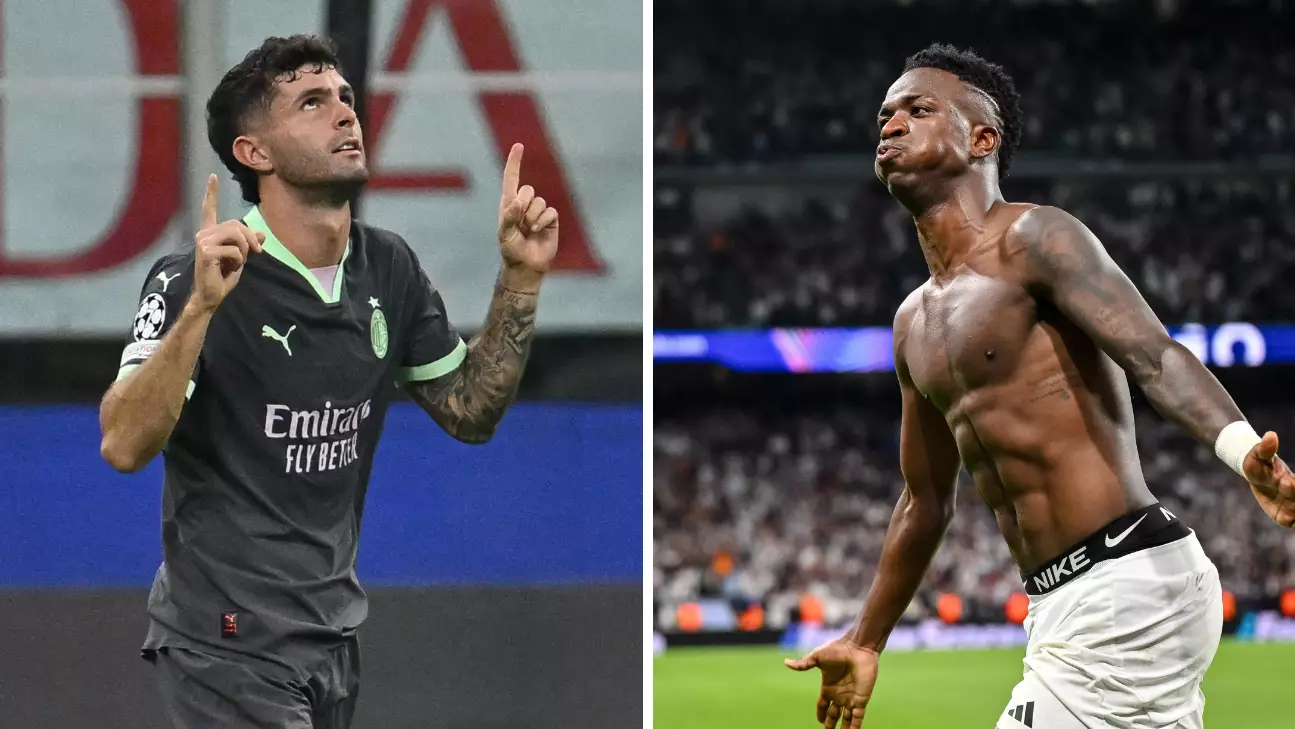The UEFA Champions League’s third matchday of the 2024-25 season has concluded, leaving fans and analysts with much to discuss. The competitive intensity of Europe’s elite football clubs is palpable, and while some teams are thriving, others are grappling with unexpected challenges. Aston Villa’s surprising emergence as the group stage leaders and remarkable performances by players such as Christian Pulisic and Vinícius Júnior are dominating conversations. This article aims to dissect the current state of play in the competition and the implications for key players and teams as they navigate this crucial phase.
Aston Villa’s status as leaders is perhaps the most astonishing storyline thus far. Traditionally seen as a mid-tier side in both domestic and European contexts, their rise signals a shift in power dynamics within the Champions League. The blend of strategic management, combined with a squad full of emerging talents and experienced players, has yielded impressive results. Underestimating Villa could now prove a fatal mistake for their opponents. The challenge moving forward will be whether they can maintain this momentum against more established powerhouse teams.
Christian Pulisic’s performance since joining AC Milan has sparked renewed interest among football fans and analysts alike. Pulisic’s evolution as a player, transitioning from his difficulties in the Premier League to thriving in Serie A, highlights resilience and adaptability. The feeling of being valued in a new environment seems to have ignited a spark in him, evidenced by his instrumental goals for Milan, including a spectacular effort against Liverpool.
In previous seasons, Pulisic often struggled for form and consistency, marked by injuries and stiff competition at Chelsea. However, his newfound confidence, coupled with the coaching he has received at Milan, appears to be unlocking his potential. The question remains: can he sustain this level of performance consistently throughout the season? For Milan to maximize their attack, Pulisic’s contributions will be critical, especially as the team looks to build a formidable offensive unit.
Vinícius Júnior’s hat trick against Borussia Dortmund has sparked debate about his candidacy for the prestigious Ballon d’Or. The Brazilian winger has emerged not just as a star player for Real Madrid but arguably one of the best in the world today. His performance against Dortmund was a culmination of skill, speed, and tactical awareness, demonstrating why he stands out despite being immersed in a league filled with talent.
The competition for the Ballon d’Or this year lacks a standout candidate, which might tilt the scales in favor of Vinícius. With stars like Rodri hindered by injuries and lesser visibility, Vinícius’s timely contributions may just solidify his position as the clear frontrunner. However, one must wonder whether the voting will truly reflect his undeniable talent or simply favor traditional big names in football.
The underperformance of both Paris Saint-Germain and Bayern Munich raises eyebrows in this year’s tournament. PSG, transitioning away from an era dominated by superstars towards an emerging talent framework, is encountering typical teething troubles. This shift may bear fruit in the long run, though their present-state inconsistencies leave much to be desired.
Bayern Munich, on the other hand, finds itself in a more precarious situation. Following heavy defeats and a slow start in the tournament, their aging squad is becoming increasingly evident. Their recent games have exposed critical limitations in defense, underscoring a pressing need for renewal and tactical rethinking. The potential for both teams to pivot and reclaim relevance exists, but immediate changes are essential.
The redesigned format of the Champions League, with its increased number of fixtures and emphasis on group performance, engenders a unique set of challenges. Every match is pivotal, and even powerhouse clubs like Bayern and PSG cannot afford complacency. As they face one another in upcoming fixtures, the stakes are higher than ever. The pressure will no doubt lead to dramatic narratives, enhancing the tournament’s allure for spectators.
As we continue to observe this dynamic competition unfold, focusing on the evolving tactics, player performances, and the strategic decisions made by coaches will be vital. The current landscape of the Champions League is not only about who’s winning but also about how teams evolve and adapt in real-time to maintain their status among Europe’s elite. Fans and analysts alike will be glued to their screens, eagerly anticipating the unfolding drama as they navigate through the remaining matches in this illustrious tournament.
